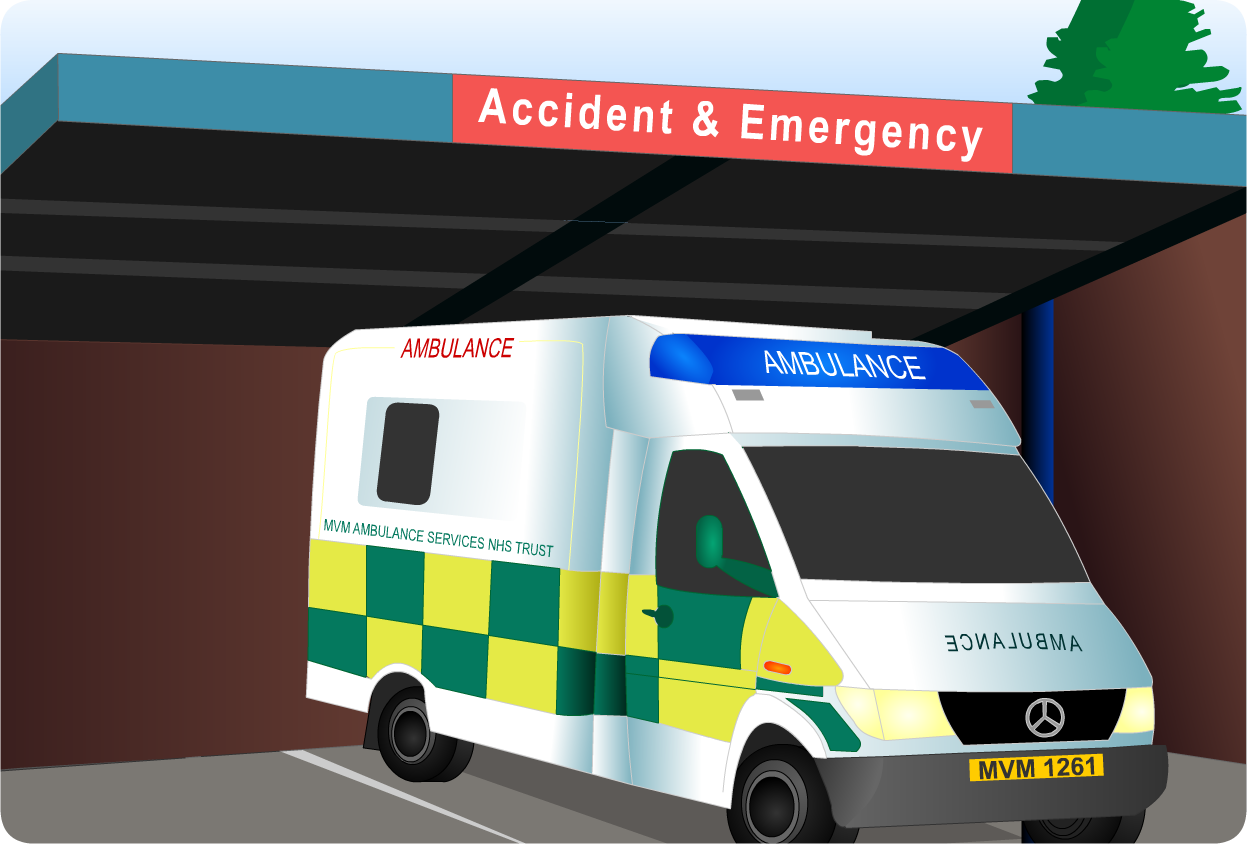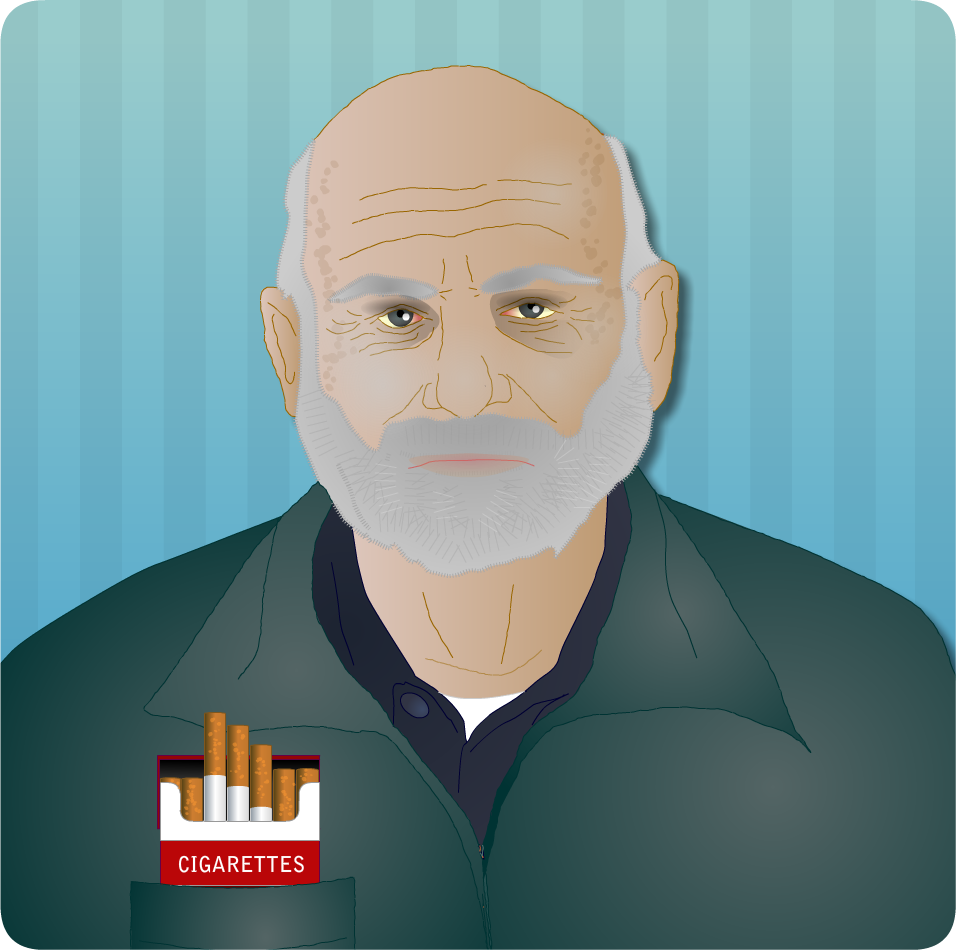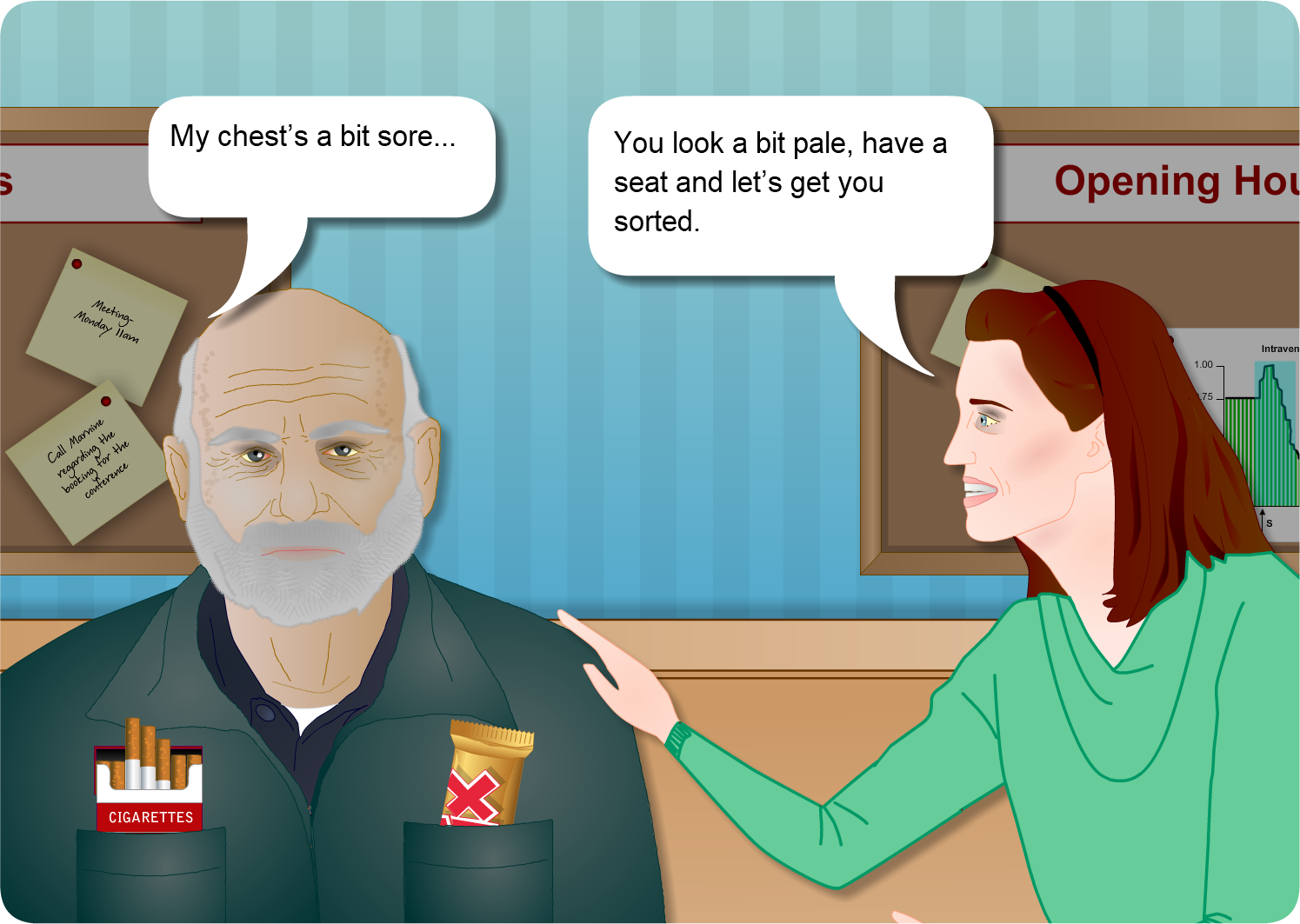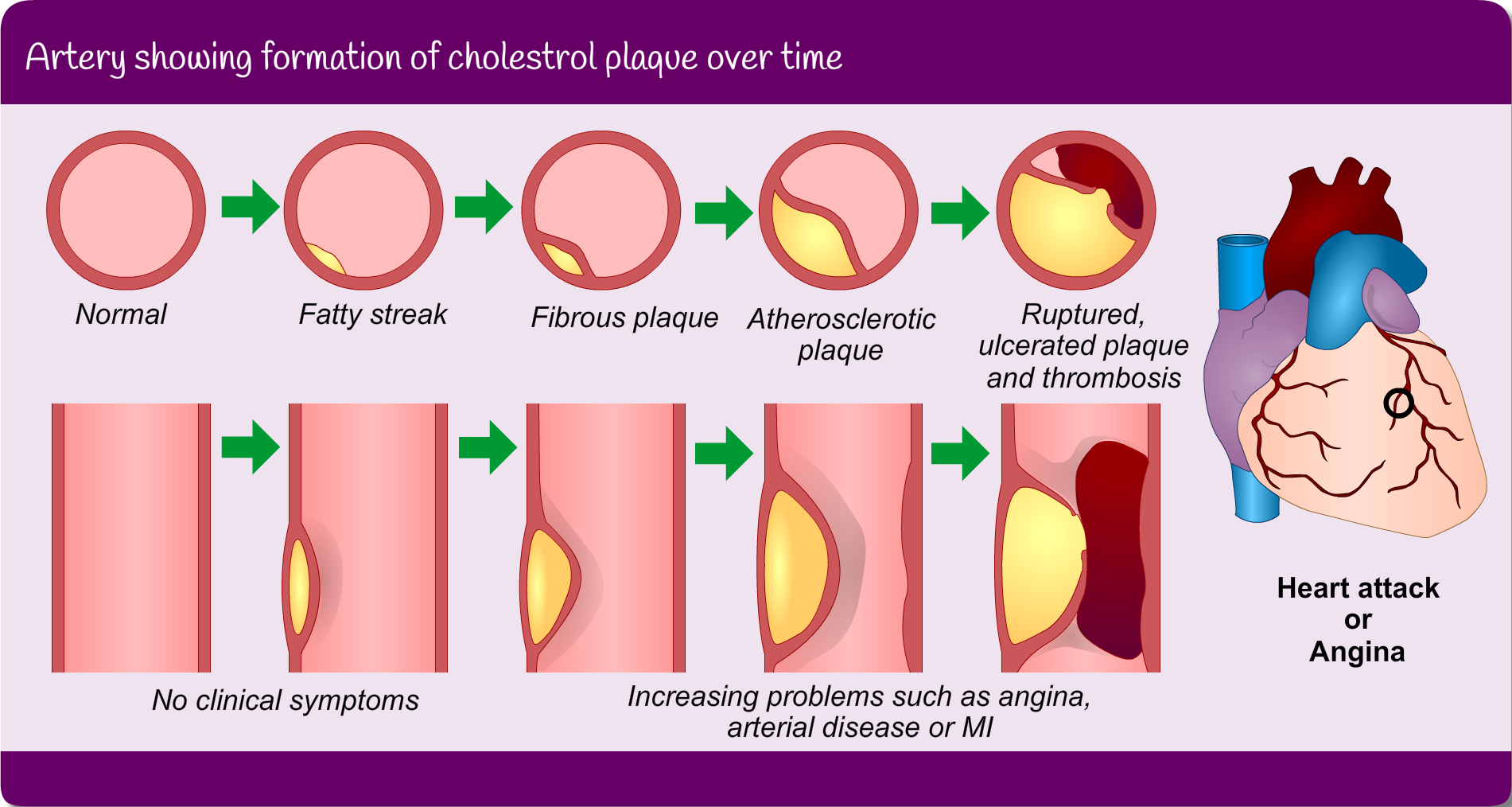The initial assessment of Hamish will allow baseline observations to be determined which will inform the provisional diagnosis.
Category: Acute Coronary Syndrome
He 4
Transfer and admission
 Following the 999 call Hamish is admitted to the medical admission unit (MAU). The GP is concerned that Hamish may have unstable angina.
Following the 999 call Hamish is admitted to the medical admission unit (MAU). The GP is concerned that Hamish may have unstable angina.
Hamish is admitted to MAU and is attached to a cardiac monitor to monitor his heart rhythm. This is important because heart rhythm disturbances are common in acute coronary syndromes. In other areas, some patients may be monitored by telemetry, which allows remote monitoring.
What happens next?
The GP assesses Hamish
Dr Donald reviews the ECG that Iona performed and gives Hamish 300 mg of Aspirin to chew and 2 puffs of GTN spray sublingually. The pain resolves within 2 minutes. (Patients presenting with acute chest pain need to be assessed urgently and have a diagnostic Electrocardiogram (ECG) performed as quickly as possible to determine the correct treatment.)
Case 1: Hamish


Hamish is a 75-year old retired fisherman from Aberdeen. He lives with his wife Flora who is 55 years old, she is a keen baker and Hamish finds it difficult to resist her sweet treats! He has been a smoker for 60 years and was diagnosed with type 2 diabetes 18 months ago. Hamish has recently taken up Scottish Country Dancing in an effort to lose some weight. He is aware of the age difference between himself and Flora and feels it has been more noticeable recently as he does not feel that he has as much energy as he used to.
Hamish has an appointment at his local GP Practice for his routine diabetic check. The practice is near his home so he always walks rather than take the car. Whilst walking to the surgery Hamish develops a pain in the centre of his chest which goes through to his back. It feels like “indigestion”, Hamish remembers the lovely pancakes Flora made for breakfast and wishes he had not had second helpings. Hamish mentions the pain to Iona the practice nurse and she notices that Hamish is looking much paler than normal she decides to perform a 12 Lead ECG, and requests that GP Dr Donald review Hamish.
Introduction to cases
Coronary artery plaque

Learning outcomes
This module explores the guidelines and information to the initial and ongoing care of an individual presenting with Acute Coronary Syndrome.
Learning outcomes:
- Define the term Acute Coronary Syndrome
- Describe the assessment and diagnostic process in ACS patients
- Describe pharmacological management of ACS
- Explain the rationale for diagnostic tests and different cardiac interventions in ACS
- Understand secondary prevention of both pharmacological and non-pharmacological management following ACS
Acute Coronary Syndrome (ACS)
ACS is an umbrella term that covers a spectrum of clinical presentations. The common pathology is a ruptured plaque within a coronary artery leading to thrombosis and flow limitation. The exact clinical picture depends upon the site of plaque rupture and the extent of flow limitation.
Introduction

Module Authors
Module Lead
Steve McGlynn, Specialist Principle Pharmacist (Cardiology), NHS Greater Glasgow & Clyde
Module Authors
Dr Paul Neary, Consultant Cardiologist, NHS Borders
Margaret McGuire, NHS 24 Practice Educator, NHS 24
Gillian Donaldson, Lead Cardiac Specialist Nurse, NHS Borders
Joanna Toohey, Cardiology Nurse Specialist, NHS Dumfries & Galloway
Reviewers
Geraldine Brady, Lecturer/senior nurse, NHS Lothian
Avril Morrison, Specialist Chest Pain Nurse, NHS Lothian
Susan Kennedy, NHS Education for Scotland National Coordinator for General Practice Nursing
Louise Peardon, Deputy Director of Advice & Support, CHSS
Marie Hurson, Cardiac Nurse Specialist, NHS Shetland
Contributors
Anne McEwan, Team Leader Vascular Nurse, NHS Fife
Morag Osbourne, Psychologist,NHS Greater Glasgow & Clyde
Louise Peardon, Deputy Director of Advice & Support, CHSS
Carol Mills, Clinical Nurse Specialist, Cardiothoracic Surgery, NHS Lothian
Krista MacKellaig, Staff Nurse, NHS Lothian


